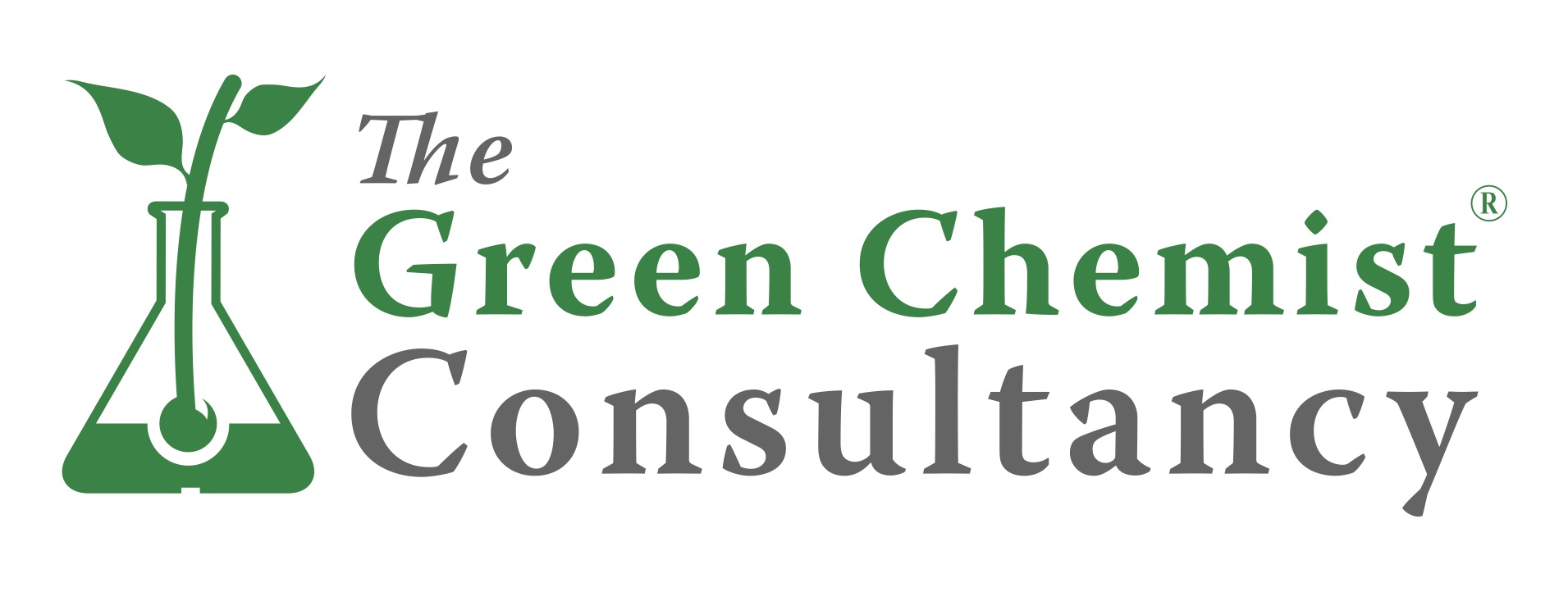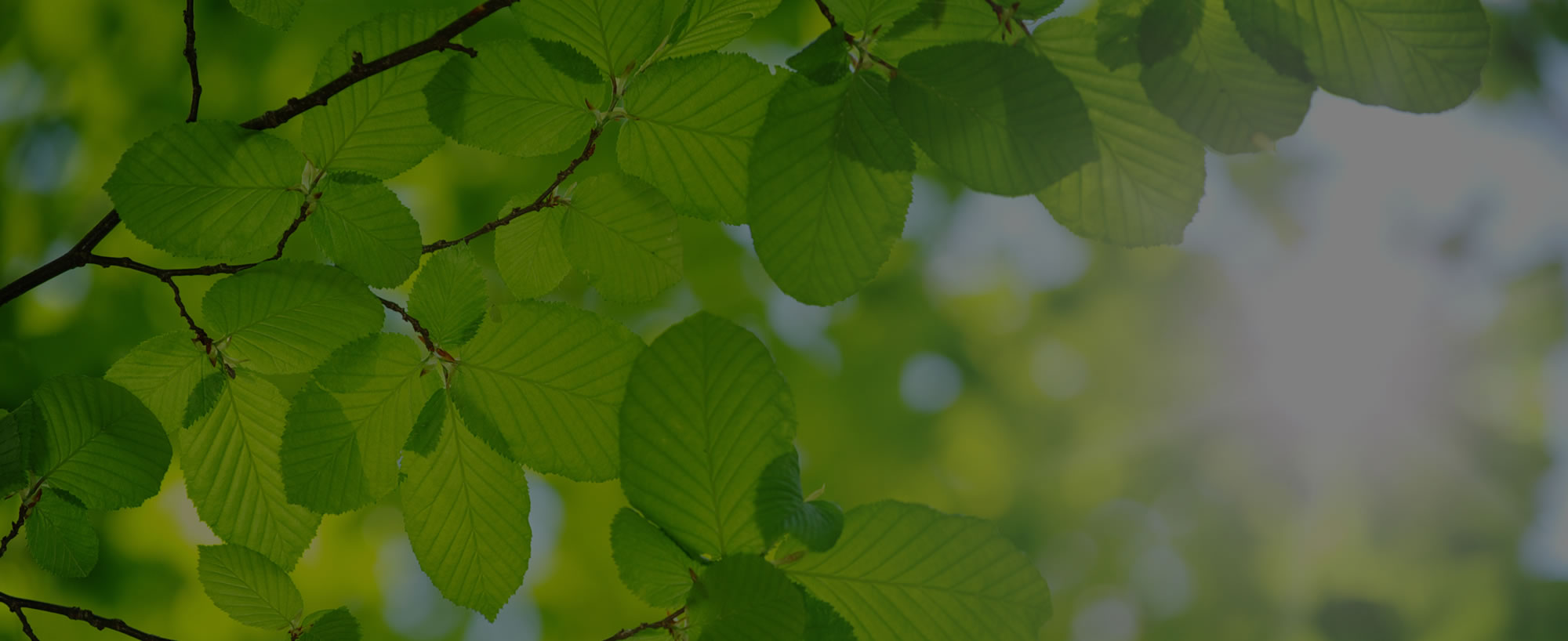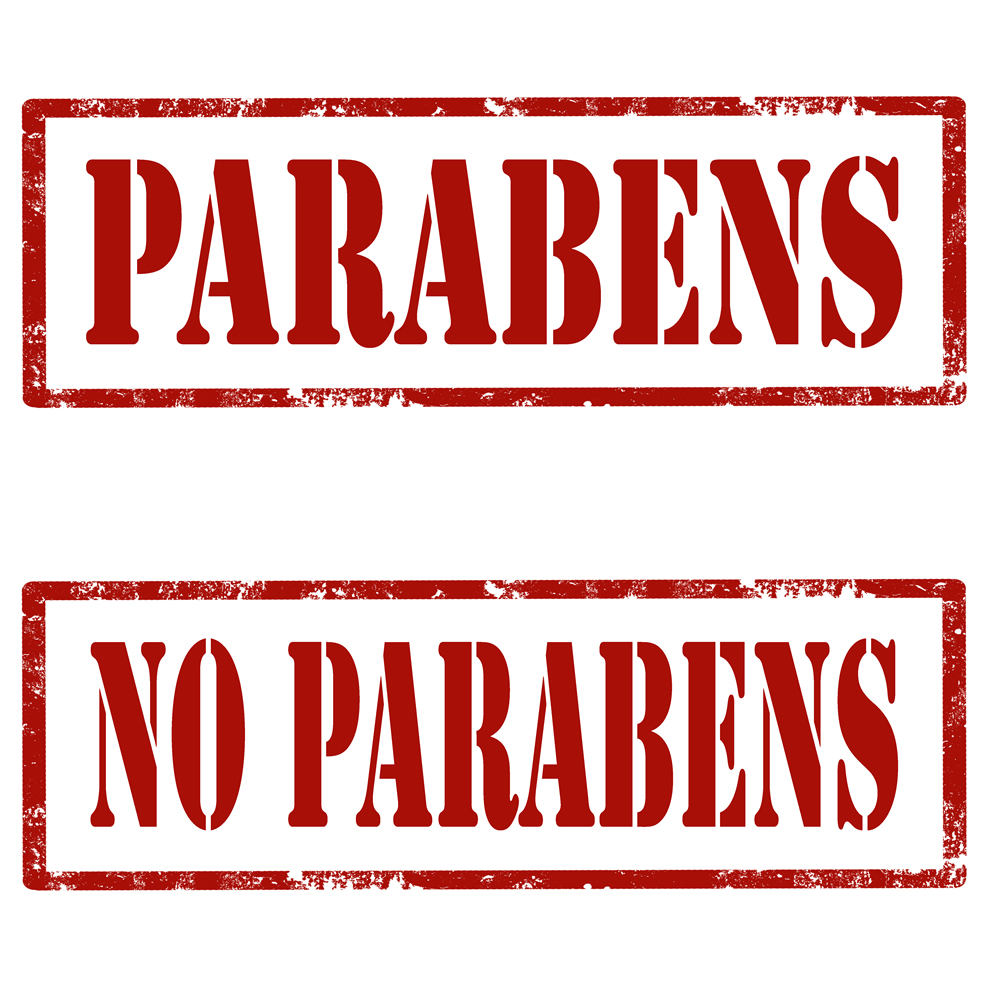
One of the questions I was asked at my workshop on natural and organic emulsions at In Cosmetics Asia was what I thought of parabens in cosmetics. This is a very controversial topic and the parabens free claim is often mistaken as natural or even safe. The cosmetic industry loves them: they are cheap, with a good dermatological profile, fitting in most cosmetic formulations providing good antimicrobial protection. However in 2004 when British scientist Dr Philippa Darbre published her article reporting parabens in breast cancer tissue, parabens and their long term safety went under public scrutiny. The findings were hinting at the potential contribution of parabens in breast cancer growth, quite a hazard especially considering the UK has high rates for breast cancer. The industry reacted by highlighting the faults of the study, the main one being parabens were found in the controls (when you measure the concentration of a substance in a sample or set of samples, it is good practise to have a control, a sample with a known concentration of that substance to make sure the method is accurate and reliable). Dr Phillipa Darbre answer to that criticism was that parabens are everywhere (even in the solvents used for the analysis) and at the time she was not aware of that, however for transparency she went ahead and published her work. She was heavily criticised for that and nobody in the industry answered by putting tests to their words by repeating the very test she did. Of course it would have been challenging in terms of getting permission to get the breast cancer tissue samples, but if there is a will there a way, so there was no will to prove with facts that parabens can not migrate to breast cancer tissue.
So the key question “can parabens be absorbed by human skin and affect our biochemistry acting like female hormones?” is left unanswered leaving me still concerned about their long term effects. To add to that concern Dr Darbre showed how parabens can potentially stimulate breast cancer growth. She incubated breast cancer cells with and without isobutyl paraben at a very low concentration, 0.00019% (in cosmetics isobutyl paraben is allowed at 0.4%) and you can see from the images below how the breast cancer cells growth is promoted by isobutylparaben.
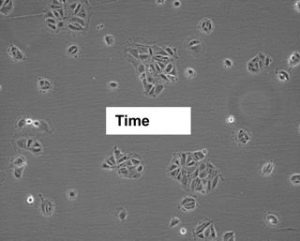
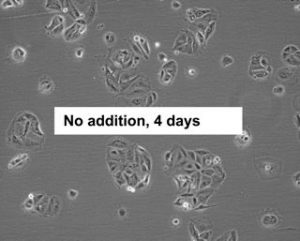
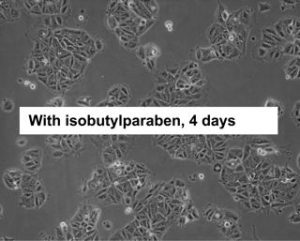
So my answer regarding parabens safety is that given the hazard of breast cancer and the lack of tests performed on human skin (not rabbits or rats please), I prefer to avoid them until further notice or tests.
As a result of this choice I have made, in my cosmetic formulation work including my own brand Forest Secrets Skincare I always avoid them.
